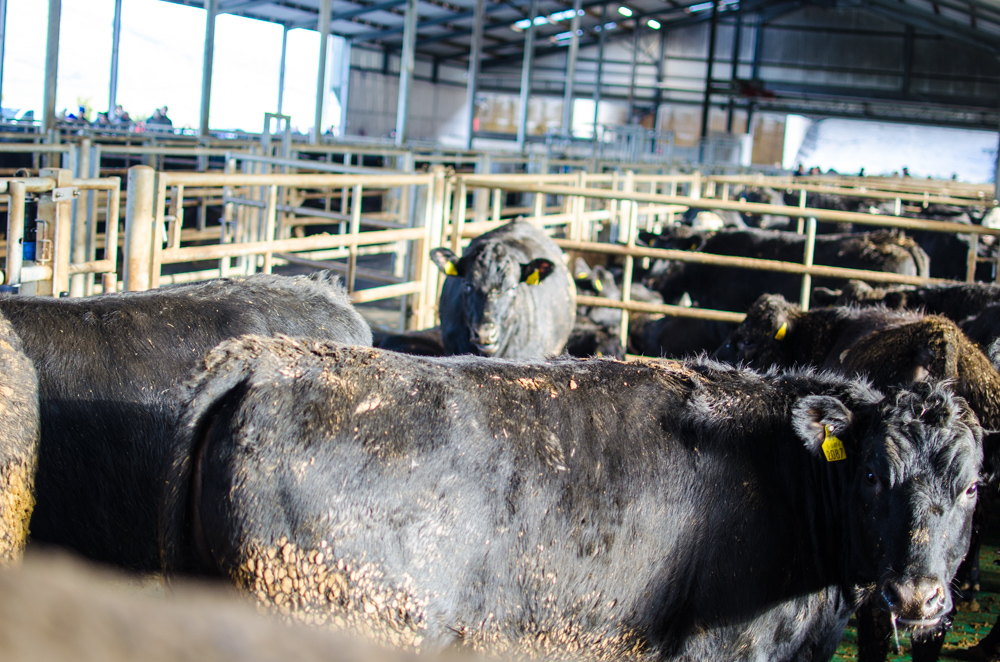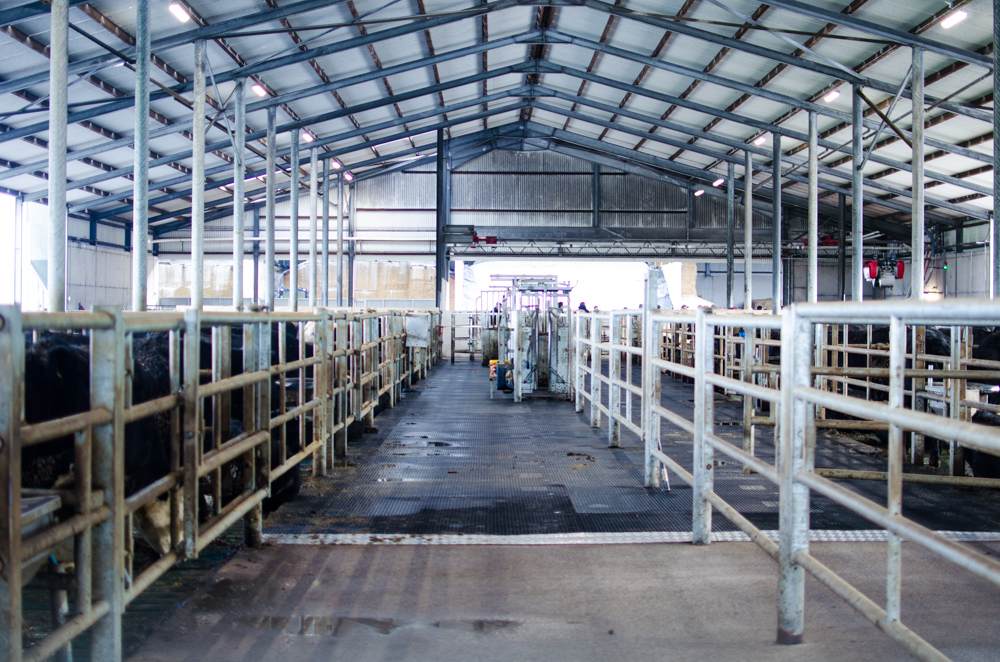Glen South Farm finishes 1,200 cattle on an annual basis and since its formation herd health has played a key role in the business.
The farm, which is owned by Frank Murphy and managed by Aine Sweeney, specialises in quick turn-around stores.
The majority of the cattle finished are Angus and Hereford heifers, which are bought in at 450kg and sent to slaughter approximately 70 days later weighing 550kg.
Yesterday, the specialised finishing unit welcomed farmers to see the Lely Vector Feeding System in operation, while local vet Tom Vaughan discussed the health measures taken to ensure the animals reach their full potential.
Cattle sourced from 40-50 different herds
The finishing shed on Glen South Farm can handle close on 360 cattle, Vaughan said, and given the nature of the operation, these cattle can come from 40-50 different herds.
As a result, Vaughan said special care is needed when it comes to the management of bought in stock, with all purchased stock held in a separate shed for three days prior to being introduced to the main finishing unit.
Following this three-day spell, the cattle are vaccinated and also receive a pour-on treatment for parasites such as liver fluke and lice.
Live-IBR vaccination used on farm
The Kanturk-based vet added that all of the cattle are vaccinated for IBR before entering the main finishing unit – a live-IBR vaccination programme is used on the farm.
The IBR vaccine provides the animals with six months protection from the virus, he said.
A vaccination programme for Blackleg has also been introduced, with Covexin-10 being the product of choice when it comes to protecting animals from costly clostridial diseases.
Dosing and withdrawal period
Given the short finishing period on farm, special care is taken when it comes to the withdrawal periods of doses.
Currently, the farm is using Closamectin pour-on, he said, which treats a number of parasitic infections including hoose, stomach worms, lice and liver fluke to name a few.
However, the product only kills fluke older then six weeks and this leaves a little to be desired, he said, but the product’s short withdrawal period (28 days) is a major benefit.
Vigilance key for herd health
The finishing unit on Glen South Farm is made of 10 different pens capable of holding 36 animals in each.
Vaughan stressed that vigilance is key when it comes to managing the health of the finishing herd, with each lame or sick animal treated on an individual basis.
However, he said the incidence of lameness, cattle suffering from acidosis or scours is quite low on the farm, and in cases where an animal is found to be sick immediate action is taken to resolve the issue.



